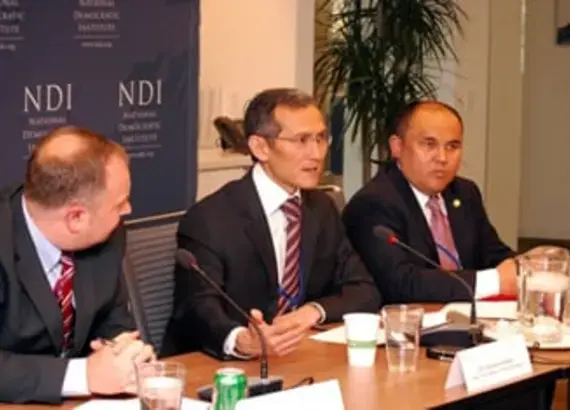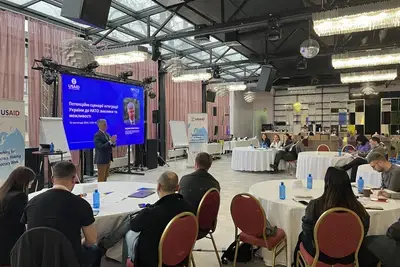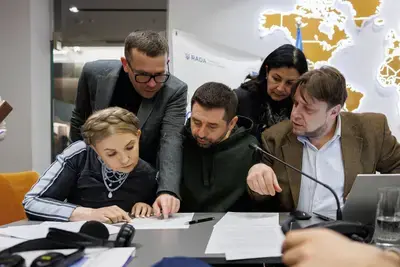
Success Story
International Community Should “Loudly Recognize” Reforms in Kyrgyzstan, Deputy Prime Minister Says
Urging greater international investment in Kyrgyzstan, Djoomart Otorbaev, deputy prime minister for economics and investment, asked the international community to “loudly recognize” Kyrgyzstan’s economic and political reforms. Speaking at NDI, he called the reform process “inevitable.”
Kyrgyzstan has made significant democratic strides since autocratic President Kurmanbek Bakiyev was overthrown in a violent revolution in 2010. Since then, the country has carried out Central Asia’s first peaceful transition of power to current President Almazbek Atambayev. At the April 18 event, Otorbaev discussed the major challenges that Kyrgyzstan continues to face, including the need to build governance systems that are more accountable to citizens.
One challenge is reforming the judicial system to ensure equal treatment of all citizens under the law. “Kyrgyzstan faces a dilemma,” Otorbaev said. “Pick experienced people for the courts and they are likely corrupt; pick new people and they will have too little experience to be judges.”
He cited corruption as the main reason why citizens mistrust the state and described a 100-day program put forward by the government for anti-corruption reforms. The reforms—all told about 80—include measures to limit contact between government inspectors and businesses to reduce opportunities for bribery; eradicate organized crime; eliminate immunity for all public officials; and create a new merit-based state service to fight economic crimes.
“These efforts,” Otorbaev said, “will also double the size of the Kyrgyz economy—now worth $5.5 billion—within five years.” There is some debate in Kyrgyzstan about whether the 100-day plan, which ended April 21, has been successful, but the reforms demonstrate a commitment to improving governance.
The anti-corruption program is just the beginning, Otorbaev said. Among other sectors the government hopes to reform are the judiciary, police and infrastructure.
Otorbaev called on the international community to provide swift financial and technical assistance to Kyrgyzstan as it takes on these challenges. In particular, he cited the success of international assistance to Georgia in combatting corruption. “Why not provide the same level of assistance to Kyrgyzstan?” he said, promising to raise the question with officials at the World Bank and International Monetary Fund.
Since 1996, NDI has fostered the development of democratic political parties, parliament, civil society and media in Kyrgyzstan. An April 10 episode of Jany Bashat—an NDI-sponsored televised public debate program—discussed the 100-day action plan, where citizens called in to the televised discussion and also offered their opinions through Jany Bashat’s Facebook page.
Since 1999, NDI has produced televised political issue debates in partnership with Kyrgyz television and radio stations. These shows funded by USAID, the National Endowment for Democracy, the U.K. Department for International Development and other donors—reach approximately 300,000 people each week. The program has helped increase awareness of constitutional reform, elections, women’s rights, economic reforms and more.
Related:
Published June 7, 2012



